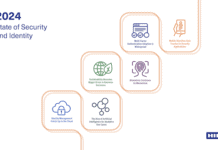 The ASIS Foundation, a 501(c)(3) charitable organization, has released Fatigue Effects and Countermeasures in 24/7 Security Operations—the latest of its Connecting Research In Security to Practice (CRISP) Report series. In it, author James C. Miller, Ph.D. explores the effects of fatigue and night work on human cognitive performance and offers countermeasures that may be used to combat these effects. The report may be downloaded here from this link CRISP_Fatigue Effects.
The ASIS Foundation, a 501(c)(3) charitable organization, has released Fatigue Effects and Countermeasures in 24/7 Security Operations—the latest of its Connecting Research In Security to Practice (CRISP) Report series. In it, author James C. Miller, Ph.D. explores the effects of fatigue and night work on human cognitive performance and offers countermeasures that may be used to combat these effects. The report may be downloaded here from this link CRISP_Fatigue Effects.
“Humans are not biologically wired to work at night. Speed and accuracy on the job are only above average between 7:00 a.m. and 7:00 p.m.,” determined Miller, “Come nightfall, efficiency and productivity decrease and safety risks rise.”
Miller’s research draws from both experimental and field studies conducted with police and others who work evening and rotating shifts, as well as fatigue research conducted by the Department of Defense. The report provides relevant information for security personnel and police in general, especially those who work at night.
Launched in 2008, CRISP reports provide practical, researched based solutions to help security professionals effectively tackle a wide range of security issues. The series invites experts in specialized aspects of security to present their views on a specific security concern.
















![[VIDEO] Collect Asset Data at the Speed of Walking a Building](https://facilityexecutive.com/wp-content/uploads/2024/02/maxresdefault-324x160.jpg)